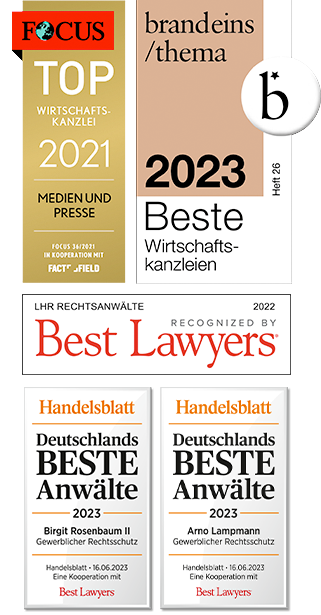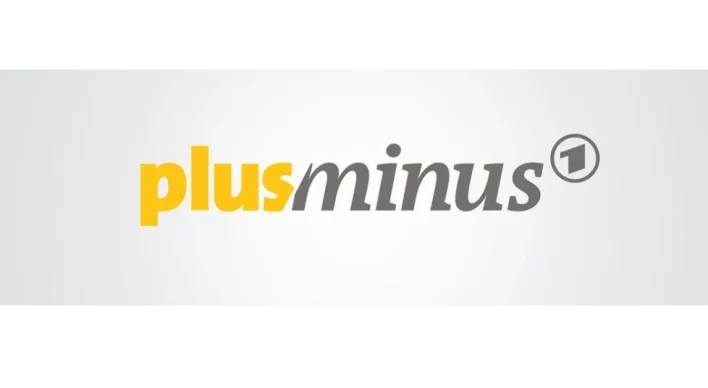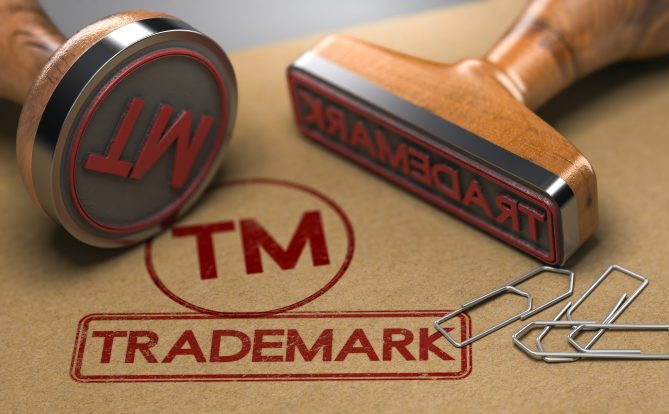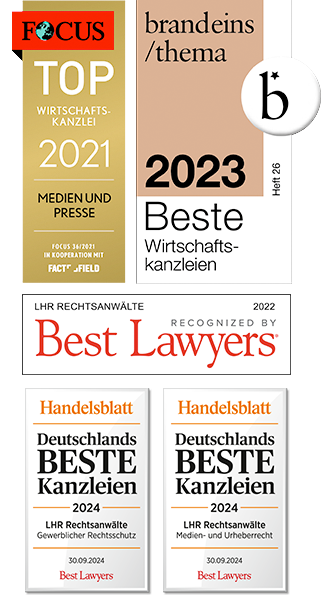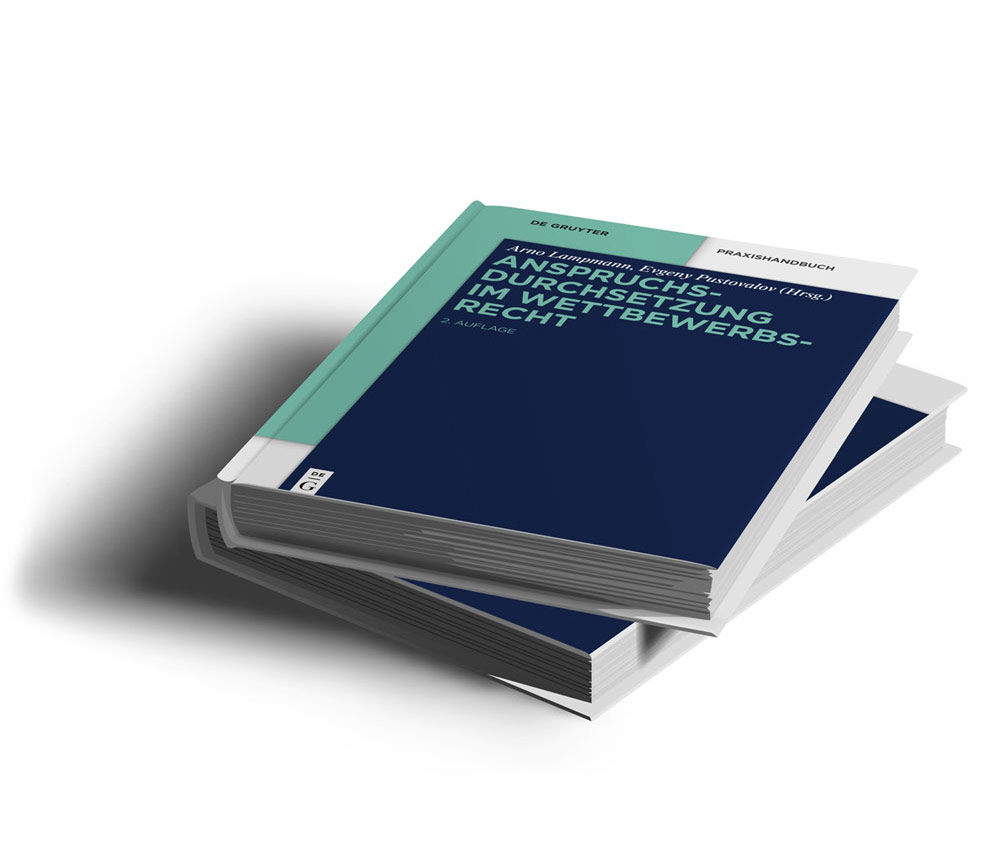BGH: Sale of software box products also permissible by simply sending the product key – Green-IT

At the end of last week, the Federal Court of Justice published the reasons for its judgement announced on 19 March 2015 (BGH, judgement of 19 March 2015, ref. I ZR 4/14 – Green-IT). Including the warning letter and the preliminary injunction proceedings previously conducted before the Regional Court of Frankfurt, this marks the end of a legal dispute lasting more than six years between a medium-sized software retailer and the globally recognised company Symantec.
6 years of dispute in 2 proceedings through 3 instances
The chronology of the decisions issued in the case is interesting not only in terms of their number, but also with regard to the caesura that the ECJ decision in July 2012 caused in the proceedings:
- LG Frankfurt, Resolution v. 16.7.2010, Az. 2-03 O 331/10 – preliminary injunction proceedings
- LG Frankfurt, Verdict v. 31.3.2011, Az. 2-03 O 331/10 – preliminary injunction proceedings
- LG Frankfurt, Verdict v. 15.3.2012, Az. 2-03 O 302/11 – Proceedings on the merits
- EuGH, Verdict v. 3.7.2012, Az. C-128/11 – UsedSoft
- OLG Frankfurt, Verdict v. 12.11.2013, Az. 11 U 32/12 – Proceedings on the merits
- BGH, Verdict v. 19.3.2015, Az. I ZR 4/14 – Proceedings on the merits
After the Frankfurt Regional Court had virtually ‘waved through’ Symantec’s application and lawsuit in its decisions, the Higher Regional Court already had to take the requirements of the ECJ into account in its judgement from 2013 and decided the case in a more differentiated manner.
The decision is one of a number of supreme court judgements that deal with the topic of ‘used software’ and implement the ECJ’s ‘basic principle decision’ issued in 2012, with which one of the most important principles of intellectual property law, the principle of exhaustion, which has remained untouched for decades, has lost its ‘physicality’. For example, BGH, judgement of 17.7.2013, ref. I ZR 129/08 – UsedSoft II and BGH, judgement of 11.12.2014, ref. I ZR 8/13 – UsedSoft III.
BGH issues landmark decision on the ‘Green IT’ business model
It is also a landmark decision, i.e. one that the Federal Court of Justice considers so important that it has summarised the elementary considerations itself in guiding principles.
The software manufacturer Symantec initiated the dispute in mid-2010 with a warning letter in which it wanted to prohibit a software retailer from offering its ‘Symantec Norton 360’ antivirus software, citing copyright and trademark law. The software (like most virus protection products from other manufacturers) could be used for one year from activation at no additional cost and was continuously updated and adapted to new virus threats during this time – otherwise reliable virus protection would not be guaranteed. In addition, according to the licence agreement, the customer was always able to upgrade his outdated software to the latest version during the term, possibly due to a new version being released in the meantime (e.g. 4.0 instead of 3.0). The ‘box products’ of the software contained a note stating that a purchaser who was unable to use the data carrier in the box, for example because his notebook did not have a drive, could download the software directly from the plaintiff’s website using the product key.
The defendant offered the software as ‘retail goods’ (complete box product), ‘bulk goods’ (complete box product without packaging) and ‘green IT goods’ (only download option plus product key), in each case with reference to the updates and upgrade option.
Symantec was particularly annoyed by a ‘Green IT’ sales variant in which the retailer only sent the buyer the serial number of the computer programme and a link by email after the purchase. With the help of this link, customers were able to download the programme from the plaintiff’s website and – as stipulated in the terms of use – in the latest version. The purchaser could request the entire box or just the data carrier and received it immediately. The defendant had data carriers that were not requested destroyed by a service company at regular intervals.
The serial number transmitted during a test purchase carried out by Symantec belonged to a ‘box product’ of the plaintiff, which contained a data carrier with the programme ‘Symantec Norton 360’ in version 3.0. According to the licence conditions on this data carrier, the purchaser is permitted to update the software to version 4.0 free of charge via the plaintiff’s website. The defendant therefore not only made use of the possibility of ‘non-physical’ or ‘online’ exhaustion of the programme copy, which was only confirmed by the ECJ in the course of the proceedings, but also of the upgrade option to the latest version of the software provided for in the licence conditions during the one-year term of the software.
The BGH decided 6 out of 7 disputed points in favour of the defendant
Even if the defendant did not emerge victorious from the legal dispute, it is not only the costs decision that shows that it was able to prevail at the BGH with the majority of the positions it had already taken in 2010 before becoming aware of the ECJ decision, which are reflected, among other things, in guiding principles a) to c) of the decision:
a) If the plaintiff who was successful at first instance pursues the same cause of action with an auxiliary claim filed for the first time on appeal as with the main claim that was successful at first instance, this does not constitute an extension of the claim that must be asserted with the cross-appeal (Fortführung von BGH, Urteil vom 22. Januar 2015 – I ZR 127/13, NJW 2015, 1608).
b) If the owner of the copyright to a computer program grants the purchaser of a copy of the program the right to use the program for the entire period during which the computer program is functional, this constitutes a sale within the meaning of Section 69c No. 3 sentence 2 UrhG, which can lead to the exhaustion of the distribution right to the copy of the program.
c) The exhaustion of the distribution right to a copy of a computer program pursuant to Section 69c No. 3 sentence 2 UrhG extends to the right to redistribute the copy of the program both by passing on a data carrier containing the copy of the program and by disclosing a product key required to download the program. It does not matter whether the reseller has received the ‘exhausted’ copy of the computer program from the seller by handing over a data carrier or by disclosing the product key.
In addition, the BGH found in favour of the defendant that, in the circumstances of the dispute, the right of use for a limited period of time was equivalent to the right of use for an unlimited period of time within the meaning of the case law of the Court of Justice of the European Union, since the computer program in question was automatically deactivated and rendered inoperable after the expiry of the service period.
In addition, the Senate emphasised that the exhaustion of the distribution right was not precluded by the fact that the user of the software is only entitled to transfer the rights to the software in accordance with the plaintiff’s licence conditions if he hands over all copies of the software and the accompanying documentation and the recipient of the software agrees to the provisions of the licence agreement. These are at best restrictions of the right of use under the law of obligations, which do not have any effect in rem.
Finally, the BGH clarified once again that exhaustion does not only refer to the current version of the software, but also to the copy of the programme sold in the version improved and updated by the copyright holder. According to the licence conditions on the data carrier of the purchased program, the purchaser was permitted to update the software from version 3.0 to version 4.0 free of charge via the plaintiff’s website, so that exhaustion also applied to this version.
The second purchaser was not authorised to reproduce by downloading
However, in the following guiding principle to point d), the BGH made a disadvantageous decision for the defendant, which ultimately led to a predominant loss of the legal dispute also in terms of trade mark law to point e):
d) If the ‘exhausted’ copy of a computer program is resold by disclosing the product key, the authorisation of the subsequent purchaser to download and thus reproduce the computer program pursuant to Section 69d (1) UrhG presupposes that the previous purchaser has rendered his copies of this program unusable at the time of resale.
e) Pursuant to Art. 13 (2) CTMR, the trade mark proprietor does not have to accept that his trade mark is used for the further distribution of a copy of a computer program put on the market by him or with his consent under this trade mark if there is a serious risk that the acquirer of the copy infringes the copyright in the computer program (Anschluss an BGH, Urteil vom 6. Oktober 2011 – I ZR 6/10, GRUR 2012, 392 = WRP 2012, 469 – Echtheitszertifikat).
As summarised in the fourth guiding principle under d), the BGH is of the opinion that the lawful downloading of the software by the second purchaser requires that the previous purchaser, in this case the defendant, has rendered its copies of this programme unusable at the time of resale. The defendant was unable to provide sufficient evidence of this requirement. In the opinion of the Senate, it therefore acted in breach of copyright law, since – to put it simply – it created the risk that two copies of the programme were in the world at the same time, instead of just one as originally.
Is rendering the programme copies unusable by the first purchaser a prerequisite for the authorisation of the second purchaser?
In this regard, the Senate refers to the ‘UsedSoft’ decision of the ECJ and in particular paragraphs 70 and 78 thereof (EuGH, Urteil vom 3. Juli 2012 – C-128/11, GRUR 2012, 904 Rn. 70 und 78 = WRP 2012, 1074 – UsedSoft/Oracle). Interestingly, however, the European Court of Justice does not say anything about the actions of the second acquirer, but only of the first acquirer, who infringes the author’s exclusive right to reproduce the computer program if his own copy is not rendered unusable at the time of resale. It is therefore explicitly about a possible infringement by the first acquirer, not by the second acquirer.
In paragraph 79, the ECJ even explicitly points out the problem associated with its generous handling of exhaustion, namely that it can be difficult to check whether a copy has been rendered unusable. However, the copyright holder who distributes copies of programmes stored on a data carrier such as a CD-ROM or DVD faces the same problem, as he can hardly check whether the first purchaser has made copies of programmes which he can continue to use after the sale of the physical data carrier. To solve this problem, the – ‘conventional’ or ‘digital’ – distributor is free to use technical protection measures, such as product keys.
In contrast, the Federal Court of Justice asserts in the guiding principles of its ‘UsedSoft II’ decision (BGH, Urteil v. 17.7.2013, Az. I ZR 129/08 – UsedSoft II) succinctly stated that the exhaustion of the distribution right according to the requirements of the ECJ presupposes that the first acquirer has rendered his copy unusable.
Apart from the fact that the ECJ has never said so, this view is also questionable because it runs counter to the purpose of the principle of exhaustion, namely the protection of the free movement of goods. In order to maintain clear and transparent conditions in legal transactions, the principle of exhaustion deprives the authorised party of the possibility of restricting the manner of further distribution. He is of course free to restrict the manner of first distribution. In this case, no exhaustion occurs, so that the authorised party can take action against further distribution (Dreier/Schulze/Schulze UrhG § 17 Rn. 25). In this case, however, the copyright holder was not worthy of protection as he had not only limited the initial distribution to physical copies, but – as emphasised on the Internet and on the product packaging – had also made it possible to download the software. The Frankfurt Higher Regional Court had still recognised this circumstance in its decision and rejected a copyright infringement.
With the above-mentioned guiding principle under d), the BGH now even deviates from its original assertion, according to which the failure to render unusable refers to the Distributionright and relates this in the present case to the Duplication record from Section 69d (1) UrhG, to which the second acquirer should not be entitled if the previous acquirer has not handed over his copies of the programme to him or has rendered them unusable.
One has the feeling that the Federal Court of Justice is only reluctantly following the ECJ’s guidelines and is ultimately maintaining its interpretative sovereignty with regard to the traditional principle of exhaustion by making the implementation of the European legal requirements considerably more difficult in practice with the requirement of rendering unusable before ‘resale’.
The trade mark right holder can oppose the use of the trade mark if his copyright is at risk
As the guiding principle to point e) shows, the BGH did not want to allow the defendant as a ‘copyright infringer’ to use the plaintiff’s trade mark – which in turn was consistent from its point of view – even though the trade mark right, like the copyright, was in principle exhausted. The trade mark owner did not have to accept that his trade mark was used for the further distribution of products placed on the market by him or with his consent if this distribution – as in the present case the distribution of the computer program by transmitting the serial number while retaining the program copy – created a serious risk that the purchaser of the product would infringe the copyright to this product.
No compensation under copyright law
It is noteworthy that the BGH emphasised that the defendant’s conduct merely harboured the risk of an infringement of rights by its customers and that no such infringement had been alleged or proven. For this reason, the Senate dismissed the annex claims under copyright law that were also asserted.
Outlook
Even 3 years after the groundbreaking ‘UsedSoft’ judgement of the ECJ, various software manufacturers, including Kaspersky and Haufe, are still trying to make life difficult for retailers who deviate from the ‘physical’ distribution channel ‘boxed product’ and instead – as the manufacturers themselves usually also provide – only send a download link together with a product key. This is despite the fact that, at least since the first ‘UsedSoft’ decision, retailers have been careful – in our opinion, above and beyond the call of duty – to document the unusability of any remaining copies of the programme.
This decision at the latest should put an end to the haunting.
(Disclosure: Our law firm represented the defendant in the legal disputes and assisted the BGH lawyer before the Federal Court of Justice. The legal disputes against Kaspersky and Haufe are also being conducted by our law firm).
